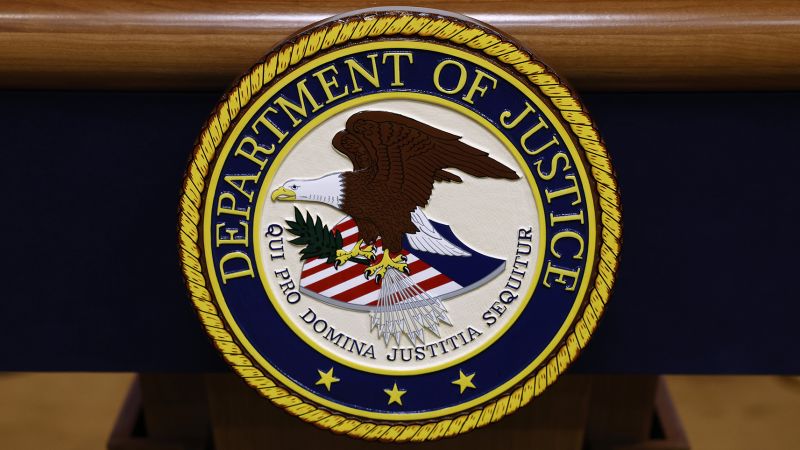
Two Chinese nationals have been charged with espionage inside the United States, accused of operating on behalf of Beijing to gather intelligence on American military capabilities. The charges, filed in federal court in San Francisco and unsealed on Monday, detail activities including photographing a naval base, coordinating a cash dead-drop, and attempting to recruit military personnel for Chinese intelligence.
The case is the latest in a series of prosecutions by the Justice Department aimed at countering what officials describe as persistent efforts by the Chinese government to secretly collect intelligence on U.S. military operations. This ongoing issue was dramatically highlighted two years ago when a Chinese surveillance balloon was shot down by U.S. officials off the coast of South Carolina.
“This case underscores the Chinese government’s sustained and aggressive effort to infiltrate our military and undermine our national security from within,” Attorney General Pam Bondi stated. “The Justice Department will not stand by while hostile nations embed spies in our country – we will expose foreign operatives, hold their agents to account, and protect the American people from covert threats to our national security.”
Details of the Espionage Activities
The defendants, identified as Yuance Chen, 38, and Liren “Ryan” Lai, 39, were arrested on charges of acting as agents for China without registering with the Justice Department, a legal requirement. Chen, who arrived in the U.S. on a visa in 2015 and later became a lawful permanent resident, and Lai, who resides in China but visited Texas this spring, are accused of supervising clandestine espionage operations for China’s Ministry of State Security (MSS).
According to an FBI affidavit, Lai has been cultivating Chen as a Chinese intelligence asset since at least mid-2021. Their operations allegedly included coordinating a dead-drop of at least $10,000 in cash to another individual working under MSS directives. They also conducted surveillance of a Navy recruiting station in California and a naval base in Washington state, sending photographs and videos to Chinese intelligence.
Recruitment Efforts and Historical Context
The FBI affidavit also reveals that Chen and Lai discussed recruiting Navy employees to work for China. During a tour of a Navy installation, Chen reportedly took photographs of names and hometowns of recent recruits, many of whom listed China as their hometown, with the information believed to have been sent to China.
This case is part of a broader pattern of Chinese intelligence-gathering efforts targeting the U.S. military. Last year, the Justice Department charged five Chinese nationals with lying and attempting to cover their tracks after being discovered near a remote Michigan military site during summer drills. In 2023, two Navy sailors were charged with providing sensitive military information to China, including details on wartime exercises and naval operations.
Implications and International Reactions
The latest charges highlight the ongoing tensions between the U.S. and China over espionage activities. These developments come amid broader geopolitical disputes and concerns over national security. The Chinese embassy in Washington has not yet commented on the case.
Experts suggest that these incidents underscore the need for heightened vigilance and stronger counterintelligence measures. “This is a wake-up call for the U.S. to bolster its defenses against foreign espionage,” said Dr. Emily Chen, a security analyst specializing in East Asian affairs. “The implications of these activities are profound, affecting not only military readiness but also diplomatic relations.”
The Justice Department’s actions are part of a concerted effort to address these threats and safeguard national security. As the investigation continues, further details about the extent of the espionage activities and potential additional charges may emerge.
Looking ahead, the U.S. is likely to strengthen its counterintelligence operations and collaborate with allies to address the challenges posed by foreign espionage. The outcome of this case could set a precedent for future prosecutions and influence international diplomatic strategies.






